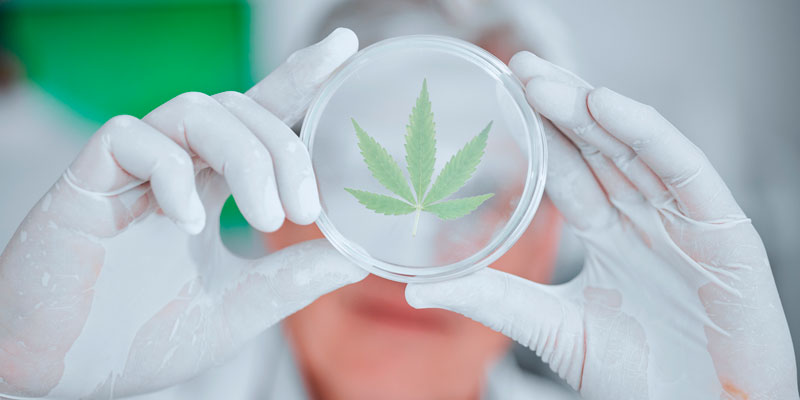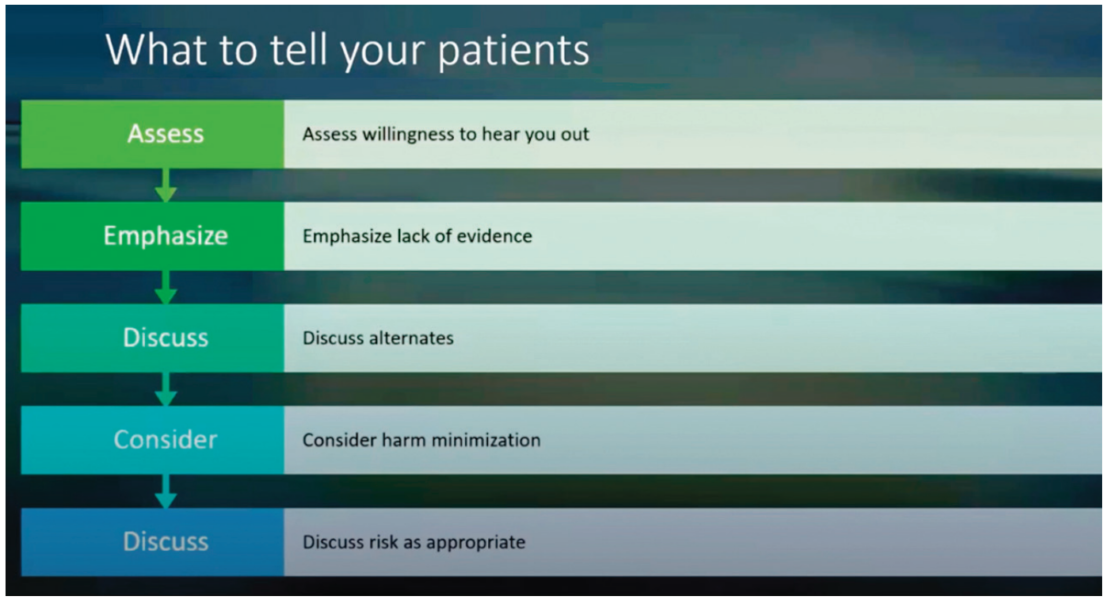Dr. Jamila Battle delves into the effectiveness, risks, and side effects of using cannabis for sleep issues.
 by Jamila Battle, MD
by Jamila Battle, MD
The use of cannabis products for sleep disorders has gained popularity, but there is limited scientific evidence to support their efficacy. Discontinuation of cannabis use has also been linked to significant sleep-related symptoms that can increase the likelihood of relapse.
Medical cannabis raises several questions:
- Does it work, and for which sleep related conditions?
- Is it safe?
- Can it be prescribed?
- What lies ahead?
Background/Overview
Understanding the distinctions between Cannabis, Marijuana, and Cannabinoids is important. Cannabis refers to the plant itself, which can be classified into different strains such as Indica and Sativa. Marijuana refers to the dried leaves or flowers of the cannabis plant. Compounds within the plant can be classified as Phyto cannabinoids (such as THC, CBD, CBN…etc) and non-cannabinoids (including terpenes, phenolic compounds, and alkaloids). Cannabinoid varieties include endocannabinoids (Anandamide, 2-AG…etc), Phyto cannabinoids and Synthetic cannabinoids (Dronabinol, Nabilone).
In the United States, ∆9-THC (the psychoactive cannabinoid in cannabis) is classified as a schedule I drug. However, recreational cannabis use has been legalized in 24 states and the District of Columbia, while medical cannabis use is permitted and/or decriminalized in 37 states.
The Hemp Farming Act of 2018 legalized industrial hemp with a ∆9-THC concentration of less than 0.3%. However, the legal landscape surrounding CBD is complex. CBD derived from cannabis plants with more than 0.3% THC is considered illegal by the DEA. The FDA has not approved CBD derived from hemp plants for medicinal or food and drink products. Epidiolex™, an FDA-approved prescription CBD, is the only drug classified as a schedule V substance, containing less than 0.1% THC.
Cannabis products for sleep disorders are on the rise but scientific evidence supporting their effectiveness is limited. The legal status of cannabis and CBD adds further complexity. Caution is necessary as research continues and regulations evolve. The FDA warns consumers that these products are not approved for diagnosing, preventing, or treating diseases, although CBD and THC remain widely available.
A survey of medical cannabis users found the top conditions for using medical cannabis were anxiety, pain, stress, and insomnia.1
Does Cannabis Help with Sleep?
Three systematic reviews have examined the effectiveness of cannabis in aiding sleep. The first review concluded that there is insufficient evidence to support the routine clinical use of cannabinoid therapies for any sleep disorder.2
A meta-analysis published in JAMA found potential benefits of cannabinoids for chemotherapy-induced nausea, weight loss in HIV or cancer patients, and spasticity in certain conditions. Positive results were observed for sleep improvement in patients with fibromyalgia using synthetic cannabinoids. However, sleep was not the primary focus of these studies.3
A recent scoping review analyzed studies from the past five decades and found that cannabis improved sleep in approximately 21% of the studies, worsened sleep in 48%, had mixed results in 14%, and had no impact in 17%. These studies collectively provide limited evidence supporting the use of cannabis for sleep.4
Cannabis has been shown to increase stage 3 non-rapid eye movement sleep in some studies, but not consistently. The effects on rapid eye movement sleep vary as well. Studies have reported a faster onset of sleep, subjective decrease in insomnia and nightmares, and improved sleep quality, but these benefits tend to decline with chronic cannabis use.5,6,7
Regular medical cannabis use may be associated with a slight increase in middle-of-the-night awakenings. Regular cannabis use is more likely to be linked to short sleep or long sleep, and heavy cannabis users are even more likely to experience extreme sleep durations.8,9
One randomized controlled trial found no improvement in sleep with various combinations of CBD/CBN, two compounds found in cannabis.10
While there is ongoing interest in the potential benefits of cannabis for sleep-related issues, the scientific evidence remains inconclusive.
Cannabis and Common Sleep Related Issues
Insomnia has been studied extensively. Two recent trials showed that THC improved sleep in patients with insomnia but had flaws in study design and lacked objective measures of improvement.11,12
Overall, the evidence for cannabis helping with insomnia is weak. Negative studies and inconsistent positive findings suggest caution when considering cannabis as a treatment for this sleep disorder.
Cannabis has been explored for excessive daytime sleepiness. While some studies have shown that cannabinoids promote wakefulness, cannabis products are also associated with significant daytime sedation.13
Research on cannabis-based treatments for sleep apnea has yielded mixed results. Synthetic THC has shown a slight decrease in sleep apnea severity, but the clinical significance is questionable.14,15 AASM issued a statement opposing the use of cannabis for treatment of OSA.
Some case series have shown promise in CBD treatment for rapid eye movement sleep behavior disorder16 but an RCT showed no difference.17 Military veterans are increasingly using cannabinoids to treat symptoms of PTSD including nightmares. A study found that treatment with Nabilone produced a reduction in nightmare presence and intensity and increased hours of sleep per night.18 A case series of 6 patients showed 100% improvement restless legs syndrome with cannabis but there have been no RCTs.19
The Potential Risks and Side Effects
From an addiction standpoint, medical cannabis use can be more problematic than recreational cannabis uses because one of the main risk factors to going on to developing cannabis use disorder or cannabis addiction is regular use. People who use it for medical purposes use it much more regularly and in larger quantities than those who are recreational users alone.20 Other risks include tolerance and withdrawal which increases in sleep disturbances.13,23 Then these sleep disturbances led to relapse back to cannabis.13
Cannabis use, whether for medical or recreational purposes, has been associated with various adverse health effects, including addiction to marijuana and other substances, motor vehicle accidents, cardiovascular complications, chronic bronchitis, and decreased lifetime achievement. Cannabis use has also been linked to the development of mental health conditions such as schizophrenia, depression, and anxiety. Long-term or heavy cannabis use has been associated with a low risk of lung cancer and other cancers.13
Cannabis products can lead to increased daytime sleepiness, especially with higher THC doses.21 A meta-analysis revealed an increased risk of fatal motor vehicle collisions with THC use. Sleep difficulties during cannabis abstinence can contribute to relapse in some individuals.22
Cannabis can also interact with certain medications, affecting their serum concentrations. Delta-9 THC decreases the serum concentrations of medications such as clozapine, duloxetine, naproxen, cyclobenzaprine, olanzapine, haloperidol, and chlorpromazine. CBD is a competitive inhibitor of CYP2C9 and CYP3A4.13
Consultation with healthcare professionals and consideration of alternative sleep management strategies is important before using cannabis products for sleep.

Moving Forward: Exploring the Future of Cannabis Products for Sleep
In recent years, there has been a surge in the availability and promotion of cannabis products as sleep aids. However, it is crucial to examine their efficacy and potential risks. While the legal debate surrounding cannabis may not directly impact its addictive properties, healthcare professionals should counsel patients about the potential risks involved.
Prescribing Cannabis: Assessing the Options
When considering the use of cannabis products for sleep, clinicians should have open discussions with patients. It is important to emphasize the lack of scientific evidence supporting the efficacy of these products for sleep-related conditions. Alternative treatments and potential risks should be thoroughly discussed. Harm minimization strategies may be considered in certain cases.13
The Reality of Cannabis for Sleep
Although some studies have reported modest improvements in subjective sleep when cannabis products were used to manage chronic pain, evidence for significant improvements in sleep disorders like insomnia and restless leg syndrome is unconvincing. Cannabis may show promise for nightmares in a military population but there is limited evidence for RBD. Dronabinol, a synthetic form of THC, has shown a slight decrease in the severity of sleep apnea, but the clinical significance is questionable. Withdrawal from cannabis use can lead to significant sleep disruption and a higher risk of relapse.
Challenges and Takeaways
The effects of THC and CDB depend on many factors including plant species, method of preparation, and how it is consumed. Significant variations in cannabinoids available on the market present challenges in studying their effects on sleep. The consensus indicates a lack of evidence supporting the use of over-the-counter CBD products for sleep improvement. Drug interactions and contamination with psychoactive THC are concerns that should not be overlooked. Dependence and other side effects should be carefully considered.
Further research is needed to explore the potential benefits and risks of cannabis products for sleep. An evidence-based approach and prioritizing patient safety are crucial in navigating this emerging field.
Critically evaluating the role of cannabis products in managing sleep-related conditions is essential. By considering the limited evidence and potential risks, healthcare professionals can guide informed decision-making processes for their patients’ sleep needs.
For more about cannabis and sleep issues, read Dr. Kent Smith’s “Weeding Out the Truth, CBD and Sleep,” here: https://dentalsleeppractice.com/weeding-out-the-truth-cbd-and-sleep/
- Azcarate PM, Zhang AJ, Keyhani S, Steigerwald S, Ishida JH, Cohen BE. Medical Reasons for Marijuana Use, Forms of Use, and Patient Perception of Physician Attitudes Among the US Population. J Gen Intern Med. 2020 Jul;35(7):1979-1986.
- Bonn-Miller MO, Boden MT, Bucossi MM, Babson KA. Self-reported cannabis use characteristics, patterns and helpfulness among medical cannabis users. Am J Drug Alcohol Abuse. 2014 Jan;40(1):23-30.
- Suraev AS, Marshall NS, Vandrey R, McCartney D, Benson MJ, McGregor IS, Grunstein RR, Hoyos CM. Cannabinoid therapies in the management of sleep disorders: A systematic review of preclinical and clinical studies. Sleep Med Rev. 2020 Oct;53:101339.
- Amaral C, Carvalho C, Scaranelo A, Chapman K, Chatkin J, Ferreira I. Cannabis and sleep disorders: not ready for prime time? A qualitative scoping review. J Clin Sleep Med. 2023 May 1;19(5):975-990.
- Gates PJ, Albertella L, Copeland J. The effects of cannabinoid administration on sleep: a systematic review of human studies. Sleep Med Rev. 2014 Dec;18(6):477-487.
- Kuhathasan N, Dufort A, MacKillop J, Gottschalk R, Minuzzi L, Frey BN. The use of cannabinoids for sleep: A critical review on clinical trials. Exp Clin Psychopharmacol. 2019 Aug;27(4):383-401.
- Acuna-Goycolea C, Obrietan K, van den Pol AN. Cannabinoids excite circadian clock neurons. J Neurosci. 2010 Jul 28;30(30):10061-10066.
- Sznitman SR, Vulfsons S, Meiri D, Weinstein G. Medical cannabis and insomnia in older adults with chronic pain: a cross-sectional study. BMJ Support Palliat Care. 2020 Dec;10(4):415-420.
- Diep C, Tian C, Vachhani K, Won C, Wijeysundera DN, Clarke H, Singh M, Ladha KS. Recent cannabis use and nightly sleep duration in adults: a population analysis of the NHANES from 2005 to 2018. Reg Anesth Pain Med. 2022 Feb;47(2):100-104.
- Saleska JL, Bryant C, Kolobaric A, D’Adamo CR, Colwell CS, Loewy D, Chen J, Pauli EK. The Safety and Comparative Effectiveness of Non-Psychoactive Cannabinoid Formulations for the Improvement of Sleep: A Double-Blinded, Randomized Controlled Trial. J Am Nutr Assoc. 2024 Jan;43(1):1-11.
- Ried K, Tamanna T, Matthews S, Sali A. Medicinal cannabis improves sleep in adults with insomnia: a randomised double-blind placebo-controlled crossover study. J Sleep Res. 2023 Jun;32(3):e13793.
- Walsh JH, Maddison KJ, Rankin T, Murray K, McArdle N, Ree MJ, Hillman DR, Eastwood PR. Treating insomnia symptoms with medicinal cannabis: a randomized, crossover trial of the efficacy of a cannabinoid medicine compared with placebo. Sleep. 2021 Nov 12;44(11):zsab149.
- Kolla BP, Hayes L, Cox C, Eatwell L, Deyo-Svendsen M, Mansukhani MP. The Effects of Cannabinoids on Sleep. J Prim Care Community Health. 2022 Jan-Dec;13:21501319221081277.
- Prasad B, Radulovacki MG, Carley DW. Proof of concept trial of dronabinol in obstructive sleep apnea. Front Psychiatry. 2013 Jan 22;4:1.
- Carley DW, Prasad B, Reid KJ, Malkani R, Attarian H, Abbott SM, Vern B, Xie H, Yuan C, Zee PC. Pharmacotherapy of Apnea by Cannabimimetic Enhancement, the PACE Clinical Trial: Effects of Dronabinol in Obstructive Sleep Apnea. Sleep. 2018 Jan 1;41(1):zsx184.
- Chagas MH, Eckeli AL, Zuardi AW, Pena-Pereira MA, Sobreira-Neto MA, Sobreira ET, Camilo MR, Bergamaschi MM, Schenck CH, Hallak JE, Tumas V, Crippa JA. Cannabidiol can improve complex sleep-related behaviours associated with rapid eye movement sleep behaviour disorder in Parkinson’s disease patients: a case series. J Clin Pharm Ther. 2014 Oct;39(5):564-566.
- de Almeida CMO, Brito MMC, Bosaipo NB, Pimentel AV, Tumas V, Zuardi AW, Crippa JAS, Hallak JEC, Eckeli AL. Cannabidiol for Rapid Eye Movement Sleep Behavior Disorder. Mov Disord. 2021 Jul;36(7):1711-1715.
- Babson KA, Sottile J, Morabito D. Cannabis, Cannabinoids, and Sleep: a Review of the Literature. Curr Psychiatry Rep. 2017 Apr;19(4):23.
- Ghorayeb I. More evidence of cannabis efficacy in restless legs syndrome. Sleep Breath. 2020 Mar;24(1):277-279. doi: 10.1007/s11325-019-01978-1. Epub 2019 Dec 9.
- Haney M. Cannabis Use and the Endocannabinoid System: A Clinical Perspective. Am J Psychiatry. 2022 Jan;179(1):21-25.
- Nicholson AN, Turner C, Stone BM, Robson PJ. Effect of Delta-9-tetrahydrocannabinol and cannabidiol on nocturnal sleep and early-morning behavior in young adults. J Clin Psychopharmacol. 2004 Jun;24(3):305-313.
- Asbridge M, Hayden JA, Cartwright JL. Acute cannabis consumption and motor vehicle collision risk: systematic review of observational studies and meta-analysis. BMJ. 2012 Feb 9;344:e536.
- Levin KH, Copersino ML, Heishman SJ, Liu F, Kelly DL, Boggs DL, Gorelick DA. Cannabis withdrawal symptoms in non-treatment-seeking adult cannabis smokers. Drug Alcohol Depend. 2010 Sep 1;111(1-2):120-127.
 Dr. Jamila Battle, triple board certified in family medicine, sleep, and addiction, is the creator of Reboot Repair Rebirth®. This innovative model helps victims who have suffered trauma truly forgive themselves. The ability of the body, mind and spirit to repair is underutilized. Furthermore, uninterrupted sleep is at the foundation of repair and restoration. She focuses on the relationship between adverse childhood experiences, toxic stress and the leading causes of morbidity, mortality, and disability to include chronic physical health problems, sleep disorders, depression, obesity, and drug abuse. Her passion is to not only serve the emotional, physical, and spiritual needs of her clients but also motivate others to identify unique talents they possess and succeed despite adversity and struggle. She volunteers with at risk families and enjoys not only health and fitness but also spending time with her husband and three children. She is a consultant physician for Dr. Jamila Battle & Associates, PA.
Dr. Jamila Battle, triple board certified in family medicine, sleep, and addiction, is the creator of Reboot Repair Rebirth®. This innovative model helps victims who have suffered trauma truly forgive themselves. The ability of the body, mind and spirit to repair is underutilized. Furthermore, uninterrupted sleep is at the foundation of repair and restoration. She focuses on the relationship between adverse childhood experiences, toxic stress and the leading causes of morbidity, mortality, and disability to include chronic physical health problems, sleep disorders, depression, obesity, and drug abuse. Her passion is to not only serve the emotional, physical, and spiritual needs of her clients but also motivate others to identify unique talents they possess and succeed despite adversity and struggle. She volunteers with at risk families and enjoys not only health and fitness but also spending time with her husband and three children. She is a consultant physician for Dr. Jamila Battle & Associates, PA.